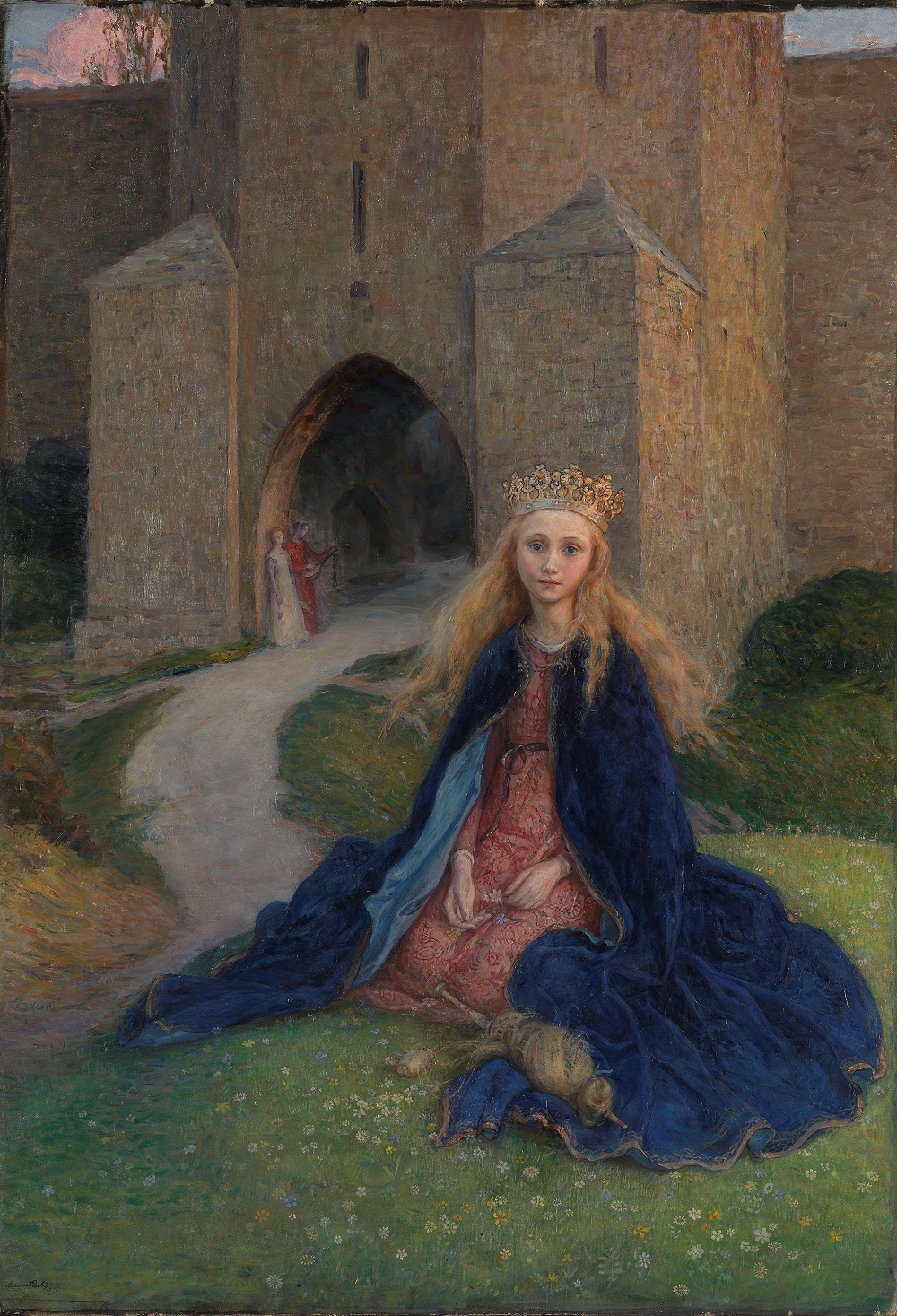
Ernest Dowson’s collection of poems Decorations: in Verse and Prose, published in 1899, ends with 5 poems in prose. The first is The Fortunate Islands. Then three of them are included in a selection by The New Formalist: Markets (after an old Nursery Rhyme), Absinthia Taetra and The Visit; note that in the latter, the sentence “I have wanted you all my life” has been changed into “I have waited for you all my life.”
The last one is “The Princess of Dreams,” a short allegory full of bitterness and disappointment. According to the editors Robert Kelsey Rought Thornton and Caroline Dowson, this text does not appear in the proofs of the volume, so it was probably a last-minute addition. Their conservative opinion is that it “constitutes a final recognition that Dowson’s idealistic image of Adelaide has been a delusion.” Others have given more hazardous interpretations: that it refers to art and not women, that it alludes to Adelaide’s unchaste behaviour, that the princess is not even a woman and Dowson is not a heterosexual, …
These 5 texts are all sad and pessimistic, and they come after the last poem in verse entitled “A Last Word,” which refers with covert words to death. They represent in some way Dowson’s bitter farewell to life. Indeed Decorations was published by Leonard Smithers in December 1899, and Ernest Dowson died on February 23, 1900.
THE PRINCESS OF DREAMS.
Poor legendary princess! In her enchaunted tower of ivory, the liberator thought that she awaited him.
For once in a dream he had seen, as they were flowers de luce, the blue lakes of her eyes, had seemed to be enveloped in a tangle of her golden hair.
And he sought her through the countless windings of her forest for many moons, sought her through the morasses, sparing not his horses nor his sword. On his way he slew certain evil magicians and many of his friends, so that at his journey’s end his bright sword was tarnished and his comeliness swart with mud. His horses he had not spared; their bones made a white track behind him in the windings of the forest: but he still bore her ransom, all the costly, graceful things stored in a cypress chest: massed pearls and amethysts and silks from Samarcand, Valance of Venice, and fine tapestry of Tyre. All these he brought with him to the gates of her ivory tower.
Poor legendary princess.
For he did not free her and the fustian porter took his treasure and broke his stained sword in two.
And who knows where he went, horseless and disarmed, through the morasses and the dark windings of her forest under the moonless night, dreaming of those blue lakes which were flowers de luce, her eyes? Who knows? For the fustian porter says nothing, being slow of wit.
But there are some who say that she had no wish to be freed, and that those flowers de luce, her eyes, are a stagnant, dark pool, that her glorious golden hair was only long enough to reach her postern gate.
Some say, moreover, that her tower is not of ivory and that she is not even virtuous nor a princess.
Source of the poem: Decorations: in Verse and Prose, in Ernest Dowson Collected Poems, R. K. R. Thornton with Caroline Dowson (editors), University of Birmingham Press (2003).
Previously published on Agapeta, 2015/06/22.

